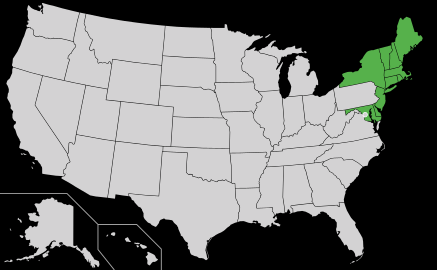Oil and Gas Drilling Rig Hazards
July 1, 2009Energy Industry Sways Congress With Misleading Data
July 8, 2009By JEREMY MILLER, The New York Times, June 30, 2009, 10:17 am
A bill introduced earlier this month would bring federal oversight of hydraulic fracturing fluids – chemical mixtures pumped at high pressure into oil and gas wells in order to unlock deposits trapped deep underground.
Environmentalists welcomed the bill, but representatives of the natural gas industry say the legislation could lead to increased costs, job losses and increased competition for water — particularly in the West.
The bill, known as the Fracturing Responsibility and Awareness of Chemicals Act, (FRAC) was introduced in both the House and Senate by representatives from Colorado, Pennsylvania and New York. It essentially seeks to overturn a 2005 legislative tweak that placed fracturing fluids outside the regulatory purview of the Safe Drinking Water Act.
“Our legislation says everyone deserves to have safe drinking water by ensuring that hydraulic fracturing is subject to the protections afforded by the Safe Drinking Water Act,” said Representative Maurice Hinchey, a New York Democrat and one of the bill’s authors, in a prepared statement. “The bill also lifts the veil of secrecy currently shrouding this industry practice.”
Several kinds of fracturing fluids are used by the gas industry. Some are merely water or compressed gases injected underground at high pressure. Others are slurries that contain a host of chemicals and “proppants” — granular substances composed of resin-coated sand grains or similar synthesized materials — that expand in the ground and hold open fissures for gas and oil to pass through.
Hydraulic fracturing fluids were developed by Halliburton in the 1940s, but their use has increased recently as exploration of deep gas fields in places like the Marcellus Shale and Colorado’s Roan Plateau has stepped up.
Today, nine out of 10 gas wells in the United States currently use fracturing fluids, according to the Interstate Oil and Gas Compact Commission, a multistate government group.
Whether or not those fluids are polluting water supplies is a matter of debate, though a lengthy report by the investigative site ProPublica last year noted that this is often difficult to determine — not least because the precise makeup of fracturing fluids are considered trade secrets in the industry.
The pending legislation would require disclosure of ingredients.
Amy Mall, a senior policy analyst with the Natural Resources Defense Council, said that the push for regulation under the Safe Drinking Water Act is not without precedent, and that the proposed legislation would simply bring hydraulic fracturing in line with other industry practices.
“Mines and companies that inject waste underground are already regulated by the E.P.A.,” said Ms. Mall. “It’s not like they’re being asked to do something completely new.”
Gas industry representatives, however, insist that states already regulate hydraulic fracturing, and that federal oversight is unwarranted.
“In the past 50 years, more than one million wells have been fractured under state regulation, and not a single well has been linked to drinking water contamination,” said Jeff Eshelman, a spokesman for the Independent Petroleum Association of America, in an e-mail message.
Mr. Eshelman argued that regulation would increase the costs of building and maintaining gas wells and ultimately lead to the loss of jobs. Pointing to Alabama, the only state where E.P.A. Safe Drinking Water Act statutes have been applied to the underground injection of fracturing fluids, Mr. Eshelman also suggested that water scarcity could become more acute under a new regulatory regime.
According to Mr. Eshelman, the 11th Circuit Court of Appeals ruledin 1997 that only “federally certified” drinking water could be used as a fracturing agent in Alabama coal bed methane projects.
In 1997, the 11th Circuit Court ruled that fracturing fluids used in Alabama coal bed methane projects must be regulated under the Safe Drinking Water Act. To meet federal regulations, the state of Alabama developed a rule stipulating that “federally certified” drinking water must be used in fracturing fluids.
While the 11th Circuit decision was voided after the 2005 Energy Policy Act exempted the regulation of fracturing fluids under the Safe Drinking Water Act, Mr. Eshelman said that the FRAC Act could trigger similar rulings across the country and potentially put gas companies in direct competition with municipalities for water.
“This could pose a serious issue for parts of the country, such as out West, where water supplies are a major concern,” wrote Mr. Eshelman.



